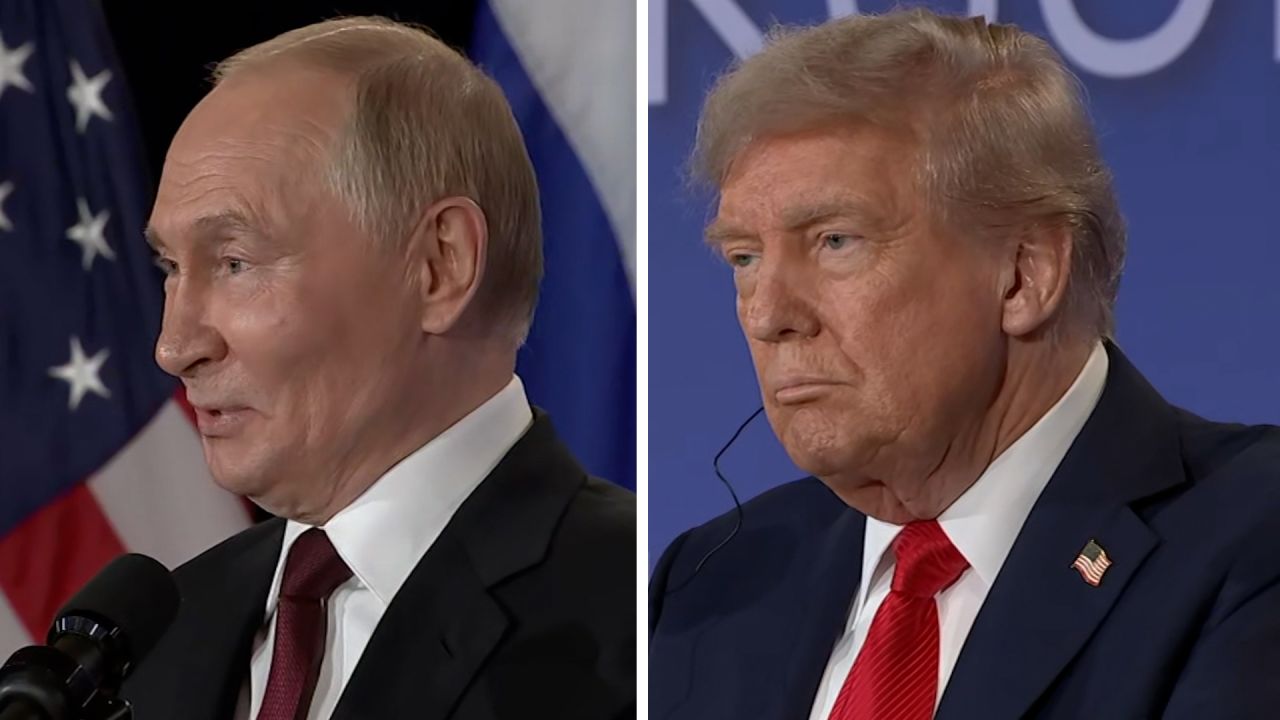Russian President Vladimir Putin and US President Donald Trump held a significant bilateral meeting in Anchorage, Alaska, on October 5, 2023. The discussions primarily focused on the ongoing Russia-Ukraine War, a conflict that has strained relations between the two nations and drawn international concern.
During the news conference following their talks, both leaders expressed their perspectives on the current situation in Ukraine. Trump emphasized the need for dialogue, stating, “We must find a way to negotiate peace.” He reiterated the United States’ commitment to supporting Ukraine while also advocating for a resolution that would benefit all parties involved.
Putin highlighted Russia’s position, asserting that the conflict arose from what he termed “unprovoked aggression” by Ukraine, supported by Western countries. He called for an end to hostilities and expressed a willingness to engage in further negotiations. The Russian leader remarked, “We seek to stabilize the situation, and dialogue is the only path forward.”
Key Points from the Meeting
The meeting marked a rare opportunity for direct communication between the two leaders, who have had a tumultuous relationship characterized by mutual distrust and accusations. The discussions lasted over two hours and included a range of topics beyond Ukraine, such as nuclear weapons and economic sanctions.
Both leaders acknowledged the challenges that lie ahead. Trump mentioned that cooperation on security issues could pave the way for improved relations. He remarked, “If we can collaborate on security, it opens doors for progress in other areas.”
In contrast, Putin warned that further sanctions would only exacerbate tensions. He stated, “The imposition of sanctions does not lead to resolution; it deepens divisions.” The leaders’ differing views on sanctions were a focal point of the discussions.
Reactions from International Observers
The meeting received varied responses from international observers. Analysts have noted that while the dialogue is a step towards de-escalation, the underlying issues remain unresolved. Maria Zakharova, spokesperson for the Russian Foreign Ministry, stated that the talks were constructive but emphasized the need for the United States to acknowledge Russia’s security concerns.
In Washington, officials reiterated their support for Ukraine, with the White House stating that any resolution must respect Ukraine’s sovereignty. A spokesperson mentioned, “We stand firmly with our allies in Europe and will continue to support Ukraine in its fight for territorial integrity.”
As the world watches, the outcomes of this meeting could have significant implications for future US-Russia relations and the ongoing conflict in Ukraine. The leaders’ commitment to dialogue is seen as a crucial step, but skepticism remains regarding whether it will lead to tangible results. The situation continues to evolve, and further discussions are anticipated in the coming months.
The Anchorage meeting highlights the complexities of international diplomacy and the delicate balance of power that necessitates ongoing dialogue, even amid deep-seated differences.






































































